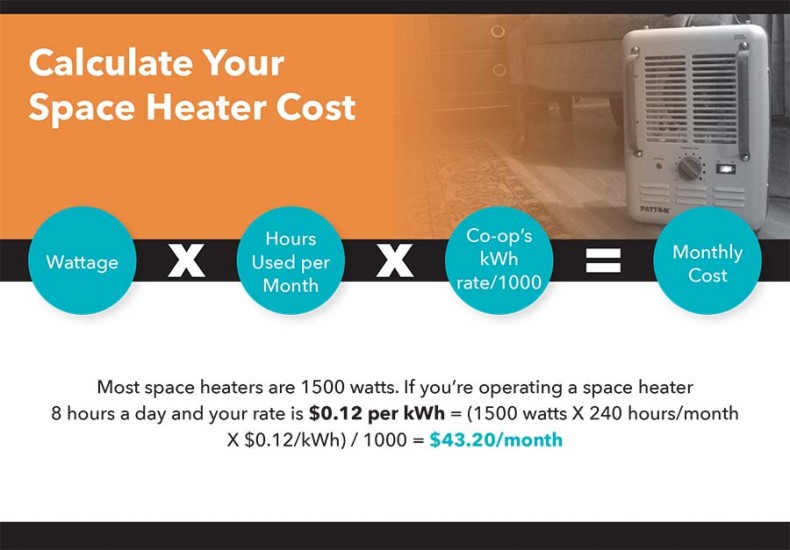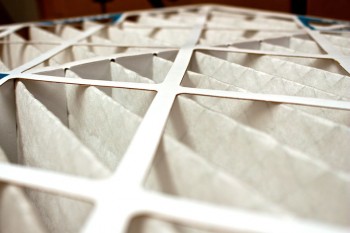Electric space heaters
How to use them efficiently in your home
By Patrick KeeganWhen it’s cold outside, it can be more cost-effective to run a space heater than turning up central heating. But if you’re not careful, doing that may increase your electric bill.
Generally, it is best to run a space heater when you need to heat just one or two rooms, or if you need temporary heat in a normally unheated area like a garage or shed. If you have particularly cold-sensitive people in the house, it can be more efficient to use a space heater in the room or rooms he or she most often occupies rather than overheating the whole house.
However, be mindful of the costs that these little heaters can add to your electric bill. “During an energy audit, I found three 1,500-watt heaters in the house of a co-op consumer with a high bill complaint,” said Nick Rusnell, an energy advisor with HomeWorks Tri-County Electric Cooperative in Portland, Mich. “I did a cost analysis for him and he was shocked.”
Do your own calculations for how much running one, two or three space heaters in your home would cost. Beware the efficiency hype around space heaters: electric space heaters are all 100 percent efficient at turning electricity into heat, but an Energy Star air-source heat pump can be 300 percent efficient.
Be savvy about use
If a space heater is right for you, here are a few tips to save energy and money:
- If you’re using a space heater to heat the one or two rooms you use most, turn down your central heating so you don’t heat up rooms you aren’t using.
- Close doors to rooms being heated to avoid heat loss.
- Turn off the heater when not in use or get a space heater with a timer feature.
- Purchase a heater with thermostat settings and use the lowest setting that you are comfortable with.
- Select a space heater that is the right size for the space you need to heat. Most have a sizing table on the box.
Types of heaters
Due to safety and air-quality concerns, portable propane and kerosene space heaters are not recommended for use in a home or other unventilated area. Even when installed properly, these types of heaters can emit low levels of carbon monoxide. Instead, look for an electric space heater. There are two main types:
- Infrared heaters: They radiate heat to the objects and people directly in front of them, rather than the air in the room. If you are often sitting in one place, such as at a desk, this can be a good option. Note that the surface of these heaters can get very hot.
- Convection heaters: They use convection to warm and cycle the air in a room. They are relatively quiet and can be warm to the touch, but not so hot as to burn you. Some models use fans to push the air over warm coils; these can warm a room faster, but are usually noisier.
About the Author
Patrick Keegan writes on consumer and cooperative affairs for the National Rural Electric Cooperative Association.-
Share this story:





Comments (2)
Shawn |
March 05, 2019 |
reply
Thank you for a good comment -- it tells me I need to be more clear when I talk about heat pump efficiency.
-Pat Keegan
Carolina Country |
March 29, 2019 |
reply